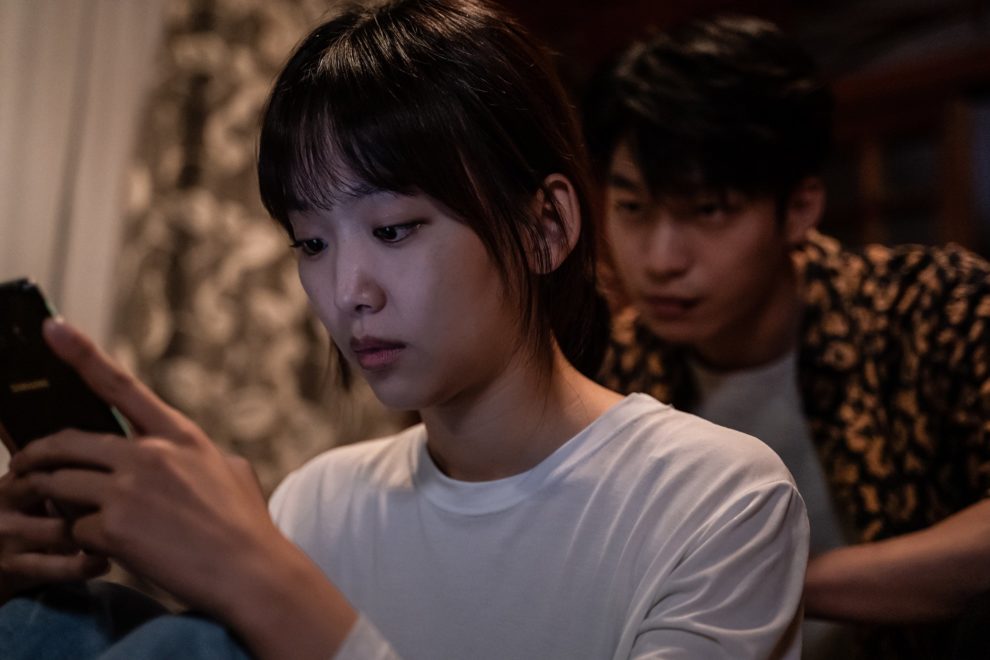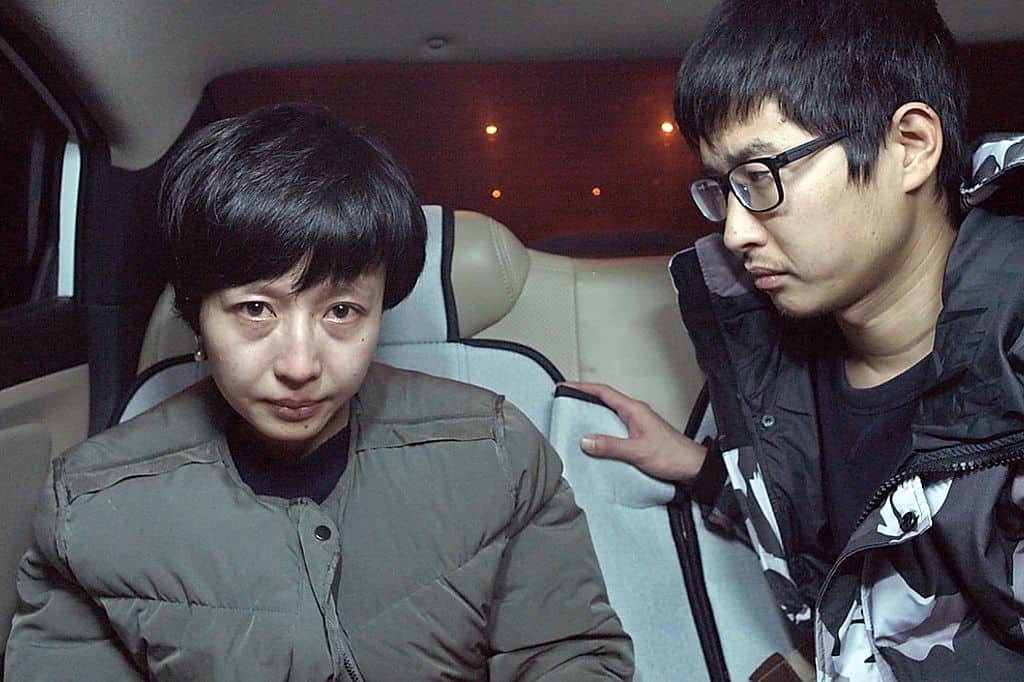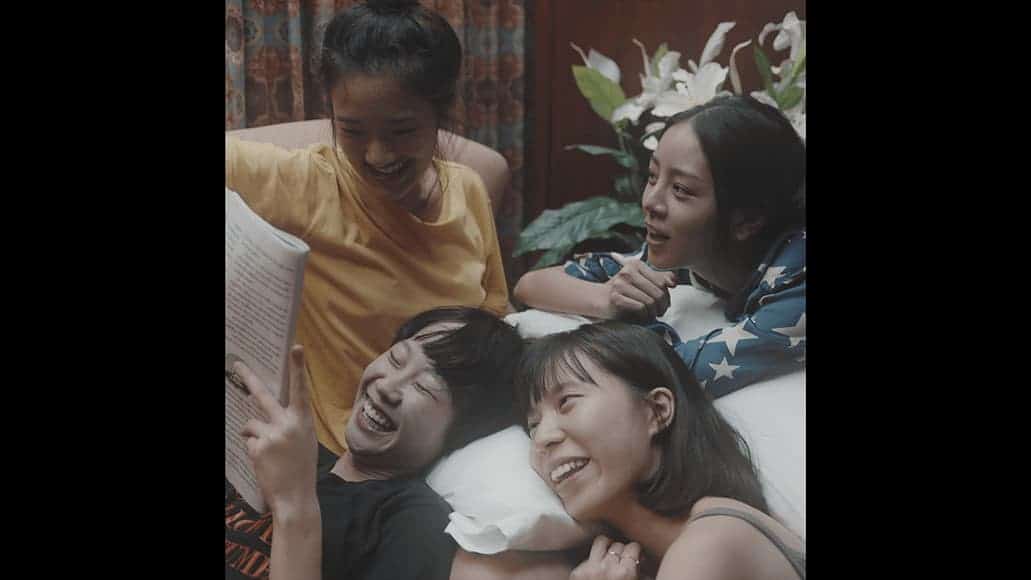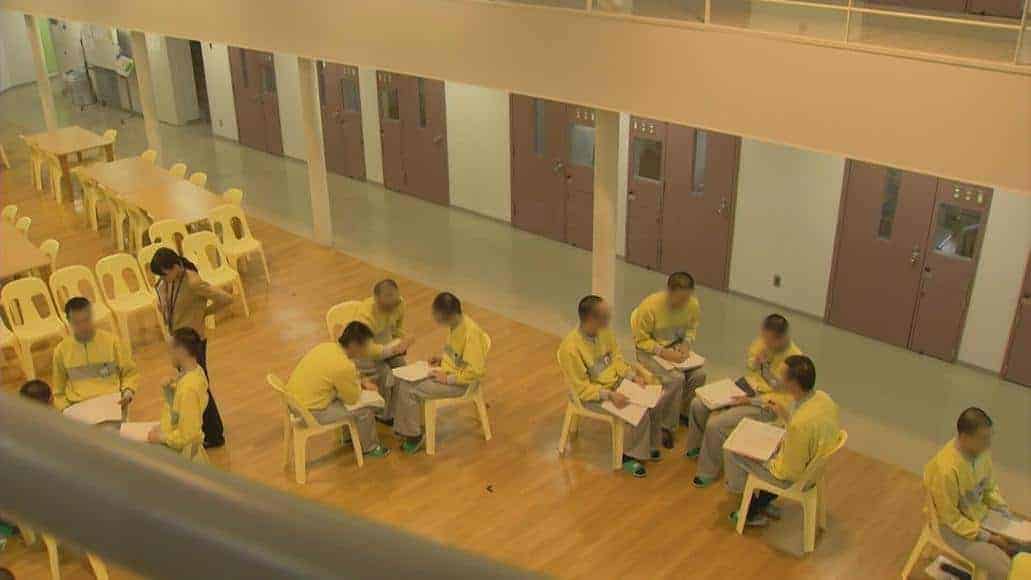Serial killer thrillers are common fodder for South Korean cinema, with some of the best features in the sub-genre coming from the country and indeed, some of the best features from the country being in this sub-genre. Every year sees a number of releases about psychotic killers to varying responses from the audiences and critics. While 2020 was a tepid year from films in general, 2021 has so far fared much better and thus of course serial killer films would also make a return. One such release is “Midnight”, which saw a hybrid release both in theatres and on the local streaming platform TVING. A release which was pretty much swept under the radar due to a lack of a strong marketing campaign, it benefited from a strong word of mouth upon release.
“Midnight” is screening at Fantasia International Film Festival

Hearing impaired Kyeong-mi lives with her mother and works in a customer service centre. One night, when she is out for an office dinner, serial killer Do-sik nearly gets to her mother before deciding to change targets and go after a younger girl So-jung instead. While So-jung's security guard brother Jong-tak searches for her, Kyeong-mi returns from the dinner and on her way back, she stumbles across Do-sik, who attempts to kill her too. Kyeong-mi, however manages to escape and thus begins a vicious game of cat and mouse between the two, while Jong-tak tries to locate and save both his sister and Kyeong-mi.
Kwon Oh-seung, who wrote the screenplay himself, manages to make a narrative that's filled with plenty edge-of-the-seat moments as the killer chases after his target, who can't hear him coming, who in turn is chased by Jong-tak, who is desperate to reach his sister before time runs out for her. In that sense, if Na Hong-jin had not already named his debut feature “The Chaser”, this would have been an apt title for Kwon's debut, with a large part of the runtime dedicated to Do-sik's attempts to catch up on Kyeong-mi and finish what he started. Speaking of “The Chaser”, Do-sik, the calm and composed killer with a lot of personality, often reminds of Ha Jung-woo's iconic role in the 2008 film, particularly in the scenes of his interactions with the police. The fact that the character, for the most part, seems like a well-researched depiction of a psychopath works in the feature's favour.

However, it's not smooth sailings throughout the character. Some of the instances that he manages to talk himself out of seem laughably out of touch with reality. Never in the long history of serial killers would there have been one who would risk so much in quick succession over one night merely to catch “the one that got away”, as it were. While the feature does make some interesting points about society's treatment of the hearing and speech impaired, some instances of Kyeong-mi asking help from not just the public but the police too seem exaggerated, to say the least. South Korean cinema's habit of painting the police in a bad light also rears its ugly head, except the way that they conduct their business when Kyeong-mi presses the emergency button or when they go to the police station is beyond disbelief, even by Korean cinema's standards. Kyeong-mi's disabilities generally work in Do-sik's favour, but it'd have also been nice to see them in a better light and work as an asset for Kyeong-mi in some way.
Jin Ki-joo, probably best known to a wider audience for playing Kim Tae-ri's best friend in “Little Forest”, pulls off a fine performance in the difficult role of Kyeong-mi. The fear, confusion and anger needed to portray the character comes off effectively, but it is the sign language scenes that she excels at. A scene later on where she pleads Do-sik to let her live using both sign language and a failed attempt to speak out words, all in one continuous shot, is testament to her skills and hard work and is so good that it can be used as a reference point for future scenes based on hearing impaired characters. Wi Ha-joon is equally impressive in bringing the psychotic Do-sik to the screen, his cocksure manner making you want to slap the sinister smile off his face. The fact that the production features these two clearly not too well-known actors is a bonus to the overall product, adding to the surprising enjoyment factor of the feature.
Technical aspects also work in making the feature further effective. Though the story takes place over one night, the lighting used by cinematographer Cha Taek-gyun is just enough for a coherent picture while still keeping certain things intriguing and successful in holding the suspense. The use of blinking lights that aid the audibly impaired in a particular scene in Kyeong-mi's house is thrilling. The lack of hearing for our protagonist means that the threat of danger lurks around every corner, which is heightened with the use of editing and an atmospheric soundtrack, by Lee Gang-hui and Hwang Sang-jun respectively. However, the production could have done with more scenes that use complete silence, like “Bori” did for example, to put the audience in the character's shoes.
“Midnight” snuck up on us like a serial killer would to the hearing impaired, although it is far more successful in doing the job it set out to do than Do-sik is. Despite a few storytelling hiccups, it manages to be a thrilling ride and among the better serial killer films out of South Korea recently.















